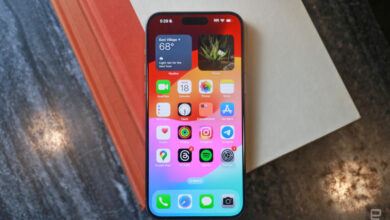
Apple has upgraded the and a few new bells and whistles. But while I expected the company to keep the M1 around as its budget option, it swapped it out for the base model M2. Someone at Cupertino’s going to regret that, because the M2 Air is, despite its limitations, a damn fine machine. I don’t know if anyone needs the added performance the M3 Air provides, but I do know you can’t afford to ignore the base model M2.
Historically, Apple has kept a MacBook below a thousand dollars to hook price-sensitive buyers. A grand is a lot to spend on a machine if you’re broke, especially if there are cheaper low-end Windows machines (even if they are crap). Even then, the $999 MacBook is the “cheap” option, and Apple will hobble it just enough to upsell you to the $1,200 model it really wants you to buy.
That’s why I cynically expected the M1 to remain in place, because the slower chip and decade-old chassis was a nice compromise in exchange for a cheaper machine. Yes, the M1 would allow you to join the Apple SIlicon world, but you’d have to deal with a design that’s barely changed since 2017. The M2, by comparison, is less than two years old and is regarded as one of Apple’s best ever machines: The fact it’s available as the budget option is almost a flex.
This morning, I reread my colleague Devindra Hardawar’s great review of the , and I still want one. The M2 has a wonderfully sleek design and comes equipped with plenty of great hardware. A fantastic 13.6-inch Liquid Retina display with a 500-nit backlight, a 1080p webcam, quad-speakers with support for Spatial Audio and Atmos. The better quality of stuff you got was probably Apple’s rationale for holding on to the M1, and charging $1,200 for the base M2 (which itself could be upsold for more with the better add-ons).
Then there’s the M2 silicon itself which, in this variation, has an 8-core CPU, 8-core GPU, 8GB RAM and a 256GB SSD. Look, I know that 8GB RAM and 256GB SSD are both major drags on the M2’s overall performance. But I can’t stress enough that this is an ultraportable without a fan designed for lower power tasks. If you buy a machine this thin and get annoyed that it can’t render a two hour 4K movie as efficiently as a Pro model, the computer isn’t the problem, no matter what it’s running.
Of course, the sticks you could use to beat the M2 MacBook Air are the same ones for a lot of Apple Silicon machines. Limited external display support, limited port selection, no ability to add upgrades further down the road and nonexistent repair support. But some or all of those issues are probably not top of your list if you’re looking for a good machine to live your life with.
Ah, but what about the AI performance which Apple says is so much better on the M3 than its immediate predecessor? I’ll be honest, I don’t know how many people are doing AI-intensive tasks on a machine like this, or even beefier ones. After all, most people are more than happy to engage with generative AIs through a web client, which requires no local grunt at all.
Not to mention that the M2 has often been offered with a hefty discount through sellers like Amazon. I’d reckon that while the $999 is a bargain, someone will probably knock another hundred off that figure the next time there’s a shopping holiday. Who needs an M3 Air?
Source link





